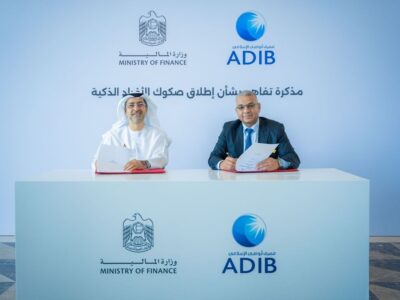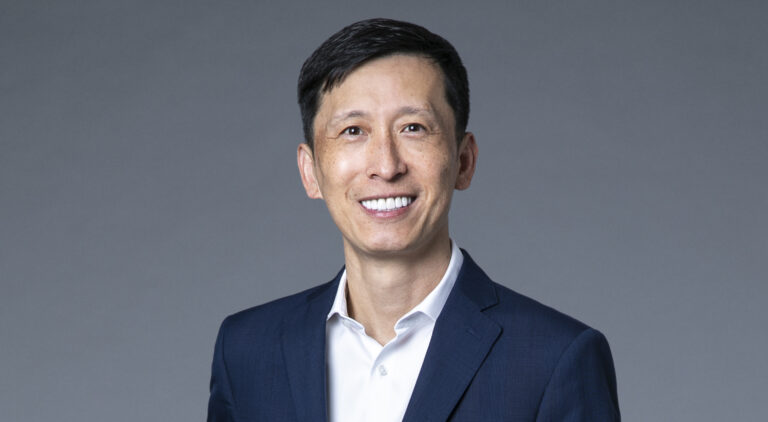At the fourth edition of EDGE – Mastercard’s flagship payments forum for Eastern Europe, the Middle East and Africa (EEMEA), Ling Hai, President of Mastercard for the Asia Pacific, Europe, Middle East and Africa (APEMEA), shared his insights on the state of the global economy, the company’s progress in financial inclusion, and the technologies shaping the future of commerce.
Economic resilience in a shifting world
Despite the turbulence in global markets, Ling Hai expressed confidence in consumers’ ability to adapt. He acknowledged that there is a lot of uncertainty right now with inflation, geopolitics, and trade conflict, but said that Mastercard’s data shows consumers are very resilient. Rather than pulling back on spending, they are simply changing their habits. “People are not stopping, spending, it’s just a shift in behaviour. For example, Europeans are going to Japan. People are not dining out as much, they’re cooking at home, so you continue to see a lot of resilience in spend and consumer behaviour but really, it’s interesting to see that there’s strong momentum for the economies around the world.”
He also pointed to artificial intelligence (AI) as a powerful driver of growth and productivity, suggesting that “AI is going to drive more productivity improvement and that’s good for growth.” Ling Hai added that when job prospects remain optimistic, this translates into “more jobs, more income, and more resilience for consumer spend.”
Financial inclusion
Discussing Mastercard’s role in supporting underbanked populations, Ling Hai highlighted the company’s achievements. “We have set some really ambitious targets at Mastercard. One billion consumers are included in the formal economy, and tens of millions of small businesses and women entrepreneurs, and we have hit those targets and proud of those achievements,” he said. Mastercard’s focus is evolving from simply enabling access to achieving real impact, real financial health.
Ling Hai explained that access alone is not enough if small businesses lack the capital to operate effectively. “If you’re a small business, you have a bank account, but there is no money in the bank account for financing your working capital – that doesn’t do anybody any good,” he said. AI, he noted, can help solve this problem by giving banks a more complete understanding of small businesses. “With AI now there’s a real opportunity of forming a better 360 view of a small business and therefore you can make a much better underwriting decision. You can extend credit at the right level without taking on additional risk.” Mastercard, he added, provides “insights, analytical rigour and algorithms” to help banks reach more small business customers.
Technology in global commerce
Ling Hai believes global commerce is entering a new era of interconnectivity and automation. “Global commerce is going to become even more connected, even more transparent, but also even more automated,” he said. The focus should not be on the technologies themselves but on what they enable. As automation increases, issues such as safety, security and interoperability become critical. “Because there are different stablecoins, different currencies, interoperability becomes even more important,” he explained, adding that Mastercard is working on certifying digital agents to ensure transactions remain legitimate.
Ultimately, consumers are interested in a seamless experience. “If you ask an average consumer, do they really care about stablecoins or AI? No, they’re looking for the simple truth of having a simple, safe, and smart experience.”
Building trust and sharing success
With payments becoming increasingly digital, Mastercard places safety and trust at the core of its operations. “Safety and security are number one priority because we’re in the business of moving money and trust is such an important driver or enablement,” Ling Hai said. He noted that Mastercard makes tens of billions of investments in safeguarding the network, including a recent acquisition of Recorded Future to enhance threat intelligence. Technologies like tokenisation, used in Apple Pay, play a key role in protecting consumers by anonymising card details.
On a regional level, Ling Hai highlighted that across markets there are more commonalities than nuances, but sharing best practice is a very important point. At Mastercard, collaboration is part of the company’s culture. “Our employees all intuitively understand success breeds success and success in my region can be really good for other regions to learn from as well,” said Ling Hai. “I do believe Mastercard has developed this culture. It’s like a muscle we have developed and it’s part of our organisational DNA.”








